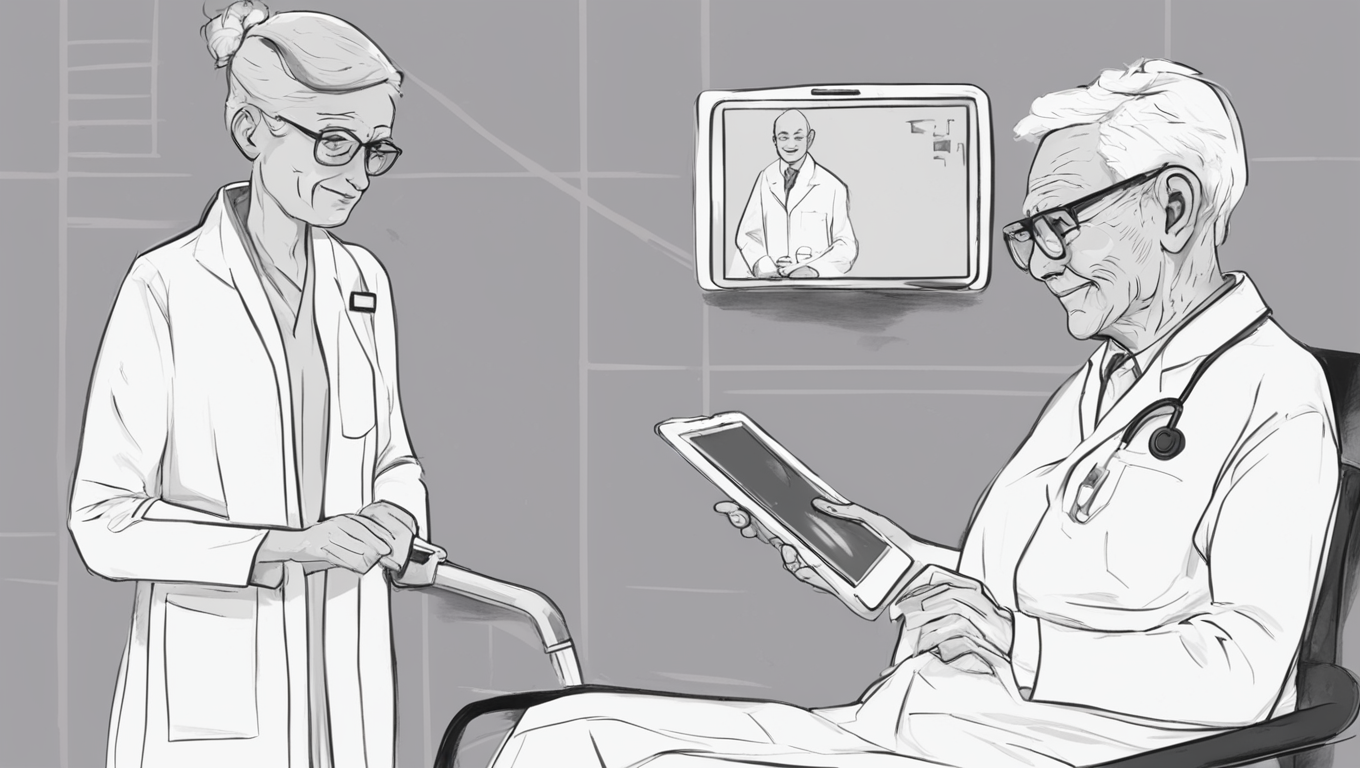When you interact with a healthcare professional online, you may soon find yourself questioning whether the person on the other end is actually a person at all. Artificial intelligence (AI) firm NVIDIA and health intelligence company Hippocratic AI are joining forces to develop “healthcare agents” that engage in remote conversations with patients. These AI agents aim to address staffing shortages and increase access to high-quality care, all while improving patient outcomes.
Hippocratic AI co-founder and CEO Munjal Shah explains the potential of these AI healthcare agents: “We can help mitigate widespread staffing shortages and increase access to high-quality care – all while improving outcomes for patients.” The company’s website showcases a range of AI-generated healthcare agents, including “Keisha,” an African-American woman in nurse’s scrubs designed to follow up with patients who have been admitted and discharged for Congestive Heart Failure. Keisha’s focus is on their follow-up care for 30 days or more post-discharge. Other agents, such as Diane, assist patients managing chronic kidney disease, and Roger helps patients fill out health risk assessment questionnaires.
The key challenge lies in making these non-human agents appear, sound, and interact like human healthcare providers. Kimberly Powell, Vice President at NVIDIA, states that “Voice-based digital agents powered by generative AI can usher in an age of abundance in healthcare, but only if the technology responds to patients as a human would.” Initial tests conducted by Hippocratic AI using human nurses and doctors in the U.S. showed promising results. In all categories, including bedside manner, education, bias, safety, and satisfaction, the AI agent “Keisha” outperformed the humans.
It is important to note that, for now, these healthcare agents are limited to phone or video conversations and aim to assist patients with follow-ups, pre-op check-ins, post-op checkups, and similar tasks. However, there is hope that they will help bridge the gap caused by the projected shortage of human healthcare workers, estimated to reach 10 million worldwide by 2030. The potential cost savings are also significant, with human registered nurses earning an average of $43 per hour, while Hippocratic AI’s healthcare agents cost only $9 per hour.
The collaboration between NVIDIA and Hippocratic AI brings us one step closer to a future where AI plays a crucial role in healthcare. By improving access, reducing costs, and delivering high-quality care, these AI healthcare agents have the potential to revolutionize the industry. Munjal Shah envisions a future where “healthcare agents will be available 24/7 and always ready to assist patients, leveraging the power of AI to optimize patient care and outcomes.” With their ability to provide personalized and efficient care, AI agents have the potential to transform the way we approach healthcare.





Use the share button below if you liked it.